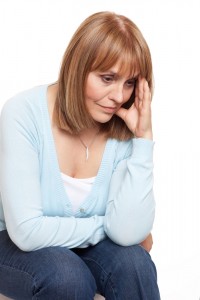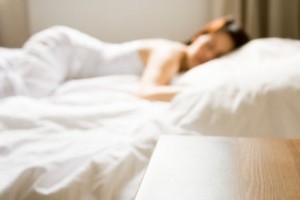While symptoms like night sweats and hot flashes are frequently discussed,other symptoms like insomnia, irritability, and panic attacks can occur during menopause as well. As all women are different, they experience these symptoms differently. For example, menopause symptoms in some women are quite mild while in other women they become severe. In this article, we will discuss panic attacks during menopause and how to deal with them.
Panic attacks – why they happen?

Panic attacks and the menopause
Panic attacks, in general, are known to be one of the most frightening, disturbing and uncomfortable experiences of person’s life. The exact source of anxiety, panic attacks, and even heart palpitations during menopause isn’t quite clear yet.
Although the exact cause of panic attacks isn’t familiar yet, because women are more likely than men to experience panic disorders most frequently during PMS, pregnancy and menopause it is assumed that panic attack has something to do with hormonal imbalance.
In most cases, women start experiencing panic attacks during per menopause, the transition period before the actual menopause. During this time, female hormones estrogen and progesterone fluctuate dramatically and start to decline.
When women enter menopause, severity and intensity of symptom experienced during that time could lead to anxiety. If left untreated, anxiety leads to panic attacks that can affect person’s wellbeing and even social life.
Estrogen and progesterone act as natural anxiolytics, which means they work together with the anxiety control receptors in your brain to prevent mood swings and cope with stress, anxiety, and panic attacks. Naturally, as the natural production of these hormones declines in menopause, women become more prone to experiencing these symptoms.
However, hormonal imbalance isn’t the only cause of panic attacks. It is believed that occurrence of different factors contributes to panic attacks. For example:
- Becoming infertile
- Lifestyle changes
- Various biological changes
- Unhealthy nutrition
- Consumption of alcohol
- Family history of panic disorder
- Stressful situations
- Children are leaving home.
Do panic attacks end with menopause?
In most cases, women experience panic attacks during perimenopause and menopause, and the severity of panic disorders decreases in post menopause. However, it is still important to mention that experiencing these attacks varies from woman to woman and while some women don’t experience panic disorders in years after menopause, others do.
For example, Smoller JW, Department of Psychiatry, Massachusetts General Hospital in Boston conducted a study to investigate the prevalence of panic attacks in postmenopausal women. The study included 3369 postmenopausal women who completed questionnaires about the occurrence of panic attacks in the previous six months.
Findings of the study were published in the journal Archives of Internal Medicine, and they showed that full-blown panic attacks in postmenopausal women were associated with a history of a migraine, cardiovascular disease, chest pain, etc. Other causes of panic attacks in postmenopausal women were stressful life events and functional impairment.
Symptoms of panic attacks
- Shortness of breath
- Chest pain or tightness
- Sweating/shaking
- Heart palpitations
- Hot or cold flashes
- Hyperventilation
- Nausea/stomach pain
- Lightheadedness etc.
Panic attacks prevention
- Eat healthy and balanced diet rich in vitamins and minerals that will supply your body with essential components it needs to function properly
- Consider taking menopause supplement to avoid missing on essential nutrients. Best menopause supplements are made of natural and herbal ingredients which also decreases chances of experiencing some side effects as well.
- For example, PM Phytogen Complex is the all-natural supplement that provides your body with substances that mimic the action of estrogen hormone making it easier for you to deal with symptoms of menopause like night sweats, hot flashes, insomnia, irritability, anxiety, etc. The product is affordable and can be purchased via the official website and in retail stores as well.
- Avoid consumption of alcohol
- Exercise regularly
- Try out some alternative manners of relaxation e.g. acupuncture, massage, yoga, meditation and many others.
- Make sure your body gets the recommended dosage of vitamins that will not only protect your overall health but also support you mentally as you go through the menopause.
- Avoid or manage stressful situations, find a unique way of relieving stress e.g. listening to music, deep breathing, writing, or even taking a walk.
Conclusion
Panic attacks occur in perimenopause and are experienced in menopause as well. Although some women don’t experience them in postmenopausal period, others do. The exact reason for panic disorders is still unknown, but it’s assumed they occur due to hormonal balance coupled with other factors. Healthy lifestyle and stress management can help you prevent panic attacks.
References
https://www.consumerhealthdigest.com/menopause-center/menopause-and-panic-attack.html
Author Bio
Meighan Sembrano is an author at Consumer Health Digest. She has a keen interest in writing. She has contributed many beauty related articles in many popular websites. She has done her Mass Communication degree. She now lives in Washington DC. She is a social worker who spends her free time searching about life, healthy, beauty and lifestyles fitness related articles. She is fond of travelling and trekking. To know more about her, follow her on Facebook and Twitter.




